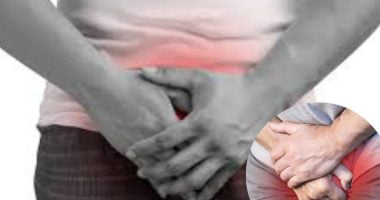Male infertility is a health condition that makes it difficult for a man to get a fertile female partner pregnant.
Infertility affects about 15% of couples worldwide. (1 Source). A couple is said to be infertile when they are not able to conceive or have a child after 1 year of unprotected sexual intercourse (using no birth control methods). Infertility affects both males and females equally.
According to research, males are found to be responsible for 20-30% of infertility cases and contribute up to 50% of cases overall. More findings show that 30 million men worldwide are infertile with the highest rates in Africa and Eastern Europe.
Male infertility is caused by several factors and in most cases are treated with medication or surgery.
The wonders of medical science have made it possible for many infertile men to get their partners pregnant. This can be achieved by using advanced technologies like In Vitro Fertilization (IVF), Intracytoplasmic Sperm Injection (ICSI), and other similar procedures.
Causes of male infertility
There are several issues or factors that can cause infertility in men. These causes have been categorized into three, namely; environmental, medical and lifestyle causes. Each has been explained in this article. Read on to know all the common cause of male infertility.
1. Environmental causes:
The sperm production or function of a man can be affected when he becomes too exposed to environmental elements like;
Industrial chemicals – overexposure to benzenes, xylene, toluene, pesticides, herbicides, organic solvents, painting materials, and lead may cause low sperm counts in a man.
Metal exposure – getting exposed often to lead (Pb) or other heavy metals can also cause you infertility. Research showed that men who get exposed to heavy metals have the tendency of producing semen with low quality.
Radiation or X-rays – avoid getting exposed to radiation as it can affect your sperm production, even though it will eventually return to normal. Note that inhaling too much radiation can permanently reduce your sperm production.
Overheating the testicles – high temperatures reduce sperm production and function. Although the research to this regard is limited and inconclusive. Keep in mind also that using saunas or hot tubs frequently may decrease your sperm count which may be temporary.
Another way your testicles can get overheated is by sitting for long periods of time. Wearing tight clothing or working on a laptop computer for an extended period of time can also increase the temperature of your scrotum and thus – may reduce your sperm production slightly.
2. Medical causes
Retrograde ejaculation – occurs when semen travels backward into the bladder during orgasm instead of passing out through the tip of the penis. Under normal circumstances, ejaculation pushes semen forward through a man’s urethra and out the tip of his penis. This is because a tiny sphincter (circular muscle) at the entrance to the bladder shuts the opening to the bladder and prevents semen from entering. In retrograde ejaculation, the muscle that shuts the bladder does not function normally. This allows all or part of the semen to travel backward (retrograde) into the bladder at the time of ejaculation. When this happens, less semen comes out the tip of the penis. Many health conditions can cause retrograde ejaculation, including diabetes, spinal cord injuries, medications, and surgery of the bladder, prostate or urethra.
Varicocele – is a condition in which the veins on a man’s testicles are large and cause them to overheat. The heat may affect the quality, number or shape of the sperm. The exact reason that varicoceles cause infertility in men is unknown, it may be related to abnormal testicular temperature regulation. varicocele is the most common reversible cause of male infertility. It can be treated to improve sperm numbers and function, and may potentially improve outcomes when using assisted reproductive techniques such as in-vitro fertilization.
Infection and disease – mumps, tuberculosis, brucellosis, gonorrhea, typhoid, influenza, smallpox, and syphilis can cause testicular atrophy. A low sperm count and low sperm motility are indicators of this condition. Also, elevated FSH levels and other hormonal problems are indicative of testicular damage. Some STDs like gonorrhea and chlamydia can cause infertility by blocking the epididymis or tubes. These conditions are usually treated by hormonal replacement therapy and surgery in the case of tubular blockage.
Also, read about Urinary Tract Infection and Treatment
Trauma to the testes – testes trauma may affect sperm production and thus – result in a lower production of sperm.
The use of certain medications and supplements – can impair sperm production and decrease male fertility. These medications include testosterone replacement therapy, long-term anabolic steroid use, cancer medications (chemotherapy), certain antifungal medications, some ulcer drugs, and certain other medications.
Cancers and nonmalignant tumors – can affect the male reproductive organs directly, through the glands that release hormones related to reproduction, such as the pituitary gland, or through unknown causes. In some cases, surgery, radiation or chemotherapy to treat tumors can affect male fertility.
Klinefelter’s syndrome – is a genetic condition in which each cell in the human body has an additional X chromosome. Men with Klinefelter’s Syndrome have one Y and two X chromosomes. Physical symptoms include peanut-sized testicles and enlarged breasts. Chromosome analysis is used to confirm this analysis. If this condition is treated in its early stages (with the drug hCG), sperm production may commence and/or improve. However, Klinefelter’s Syndrome eventually causes all active testicular structures to atrophy. Once a testicular failure has occurred, improving fertility is impossible.
Medical conditions – certain medical conditions such as diabetes, endocrine problems, cystic fibrosis, certain types of autoimmune disorders, and certain types of infections may cause testicular failure.
Also, read how to lower your blood sugar level naturally
Damaged sperm ducts – about 7% of infertile men are unable to transport sperm from their testicles to out of their penis. This pathway may be blocked by a number of conditions such as genetic or developmental mistakes, scarring from tuberculosis or some STDs and elective or accidental vasectomy.
Celiac disease – a digestive disorder caused by sensitivity to gluten, celiac disease can cause male infertility. Fertility may improve after adopting a gluten-free diet.
Torsion – this is usually a common problem affecting fertility that is caused by a supportive tissue abnormality which allows the testes to twist inside the scrotum which is characterized by extreme swelling. Torsion pinches the blood vessels that feed the testes shut which cause testicular damage. If emergency surgery is not performed to untwist the testes, torsion can seriously impair fertility and cause permanent infertility if both testes twist.
Surgery – certain surgeries can challenge a man from having sperm in his ejaculate. These surgeries include vasectomy, scrotal or testicular surgeries, prostate surgeries, inguinal hernia repairs, and large abdominal surgeries done for testicular and rectal cancers, among many. Often time, surgery can be performed to either reverse this blockage or to retrieve sperm directly from the epididymis and testicles.
Erectile dysfunction (ED) – is a condition that affects a number of men. It is the result of a single, or more commonly a combination of multiple factors. ED happens when blood flow in the penis is limited or nerves are harmed. It can also be triggered by Prolonged stress. In some cases, ED may be an early warning of a more serious illness, like atherosclerosis (hardening or blocked arteries), heart disease, high blood pressure or high blood sugar from Diabetes.
Hormonal imbalances – can be a result of testicle disorders or an abnormality affecting other hormonal systems such as pituitary, thyroid, hypothalamus, and adrenal glands. Having low testosterone (male hypogonadism) and other hormonal problems are made possible by a number of underlying causes.
3. Lifestyle and other causes of male infertility
Emotional stress – stress can affect certain hormones needed to produce sperm. Accumulated or prolonged emotional stress, plus other infertility problems, can affect your sperm count.
Depression – experts reported that the likelihood of pregnancy to occur in a fertile woman may be lower if the male partner has severe depression. In addition, depression in men may cause sexual dysfunction due to reduced libido, erectile dysfunction, or delayed or inhibited ejaculation.
Overweight – also referred to as obesity can interfere with fertility in several ways, such as directly affecting sperm and causing hormonal changes that question a male’s fertility.
Read how to lose weight excessively in two weeks
An unhealthy diet and lifestyle – can affect both erections and sperm health. Certain diets, such as those high in fat and animal protein, have been shown to hurt sperm health. Consume foods that have less sugar content and avoid taking too much alcohol. Quit smoking if you want to produce healthy sperm and avoid longterm anabolic steroid use. Drug use can affect male fertility to a large extent as well.
Also read about 7 foods that could harm
Risk factors of male infertility
Infertility in men usually occurs because of inadequate numbers of sperm, abnormal sperm or as a result of ejaculation problems. In addition, male infertility can be linked to the following factors;
- Severe depression
- Obesity
- Tobacco smoking
- Drug abuse
- Long term stress
- Alcohol intake
- Untreated infection and diseases
- Overexposure to toxins and chemicals
- Trauma to the testes
- Presence of certain medical conditions
- overheating of the testicles
- Having undergone certain surgeries
- Being born with a fertility disorder or having fertility disorder in your family bloodline
- Taking certain medications or treatments
- Having a history of undescended testicles
Also, know how safe you are with alcohol
Symptoms of male infertility
Signs and symptoms of male infertility can sometimes become unnoticed until a man tries to have a baby. The symptoms a man may experience depend on what caused infertility. Nevertheless, common symptoms of male infertility include;
- Changes in hair growth
- Changes in sexual desire
- Small, firm testicles
- Pain, lump, or swelling in the testicles
- Problems with erections and ejaculation
When to see your doctor
If you have been experiencing any of the infertility signs mentioned or have been trying to have a baby for over one year ( or 6months if you are above 35 years of age), consider speaking to your doctor about it.
Your doctor may order you to go for some clinical examinations. Blood, urine, and imaging tests may be carried out to discover why you are unable to impregnate a fertile female. A sperm analysis may also be done to check your sperm count and general sperm health.
Note: that you may be referred by your doctor to a reproductive endocrinologist( infertility specialist) where you will be asked certain questions about your infertility symptoms, lifestyle and possible medical history.
Ensure to be sincere in your answers and also discuss other ways of conceiving with your doctor in the course of your visit.
How can male infertility be treated?
Treating male infertility is mostly done using one or more of the following methods:
- Taking medications to help increase sperm production
- Treating infection with antibiotics
- Taking hormones supplements to improve hormone imbalance
- Avoiding taking long hot showers, using hot tubs or saunas
- Wear more of loose-fitting underwear such as boxer shorts versus jockey shorts
You can also improve your sperm production by taking clinically proven supplements. Taking these supplements will help increase your sperm quantity, quality and also increase your chances of conception. A number of health food stores and vitamin shops offer male fertility supplements. Click to shop for male fertility supplements on Amazon.
Alternative conception methods
If you have been confirmed having fertility issues by your doctor, don’t be discouraged as you can still have a child of your own. Here are alternative conception methods you can try out.
Artificial Insemination – This is an option for men with low sperm count. The process entails collecting a man’s sperm through multiple ejaculations. The sperm is then manually placed in a female’s uterus or fallopian tubes for conception to happen.
In Vitro Fertilization(IVF) – Another option you can go for is In vitro fertilization(IVF). This option is mostly used as it helps to overcome male infertility factors. IVF is done when the sperm and egg are fertilized externally, (that is, in a laboratory) after which the fertilized egg is placed in the female’s uterus.
However, if after tests it is discovered that there is no sperm production or that other related problems are present, donor sperm may be sought and used to help facilitate conception. The donor sperm can be retrieved from a sperm bank and then placed inside the female’s uterus or fallopian tubes through artificial insemination.
Can male infertility be prevented?
Male infertility that is caused by genetic problems or illnesses cannot be prevented. However, there are a number of steps that can be taken to minimize the tendency of infertility in men. To reduce male infertility;
- Avoid sexually transmitted diseases
- Don’t use illicit drugs
- Avoid smoking
- Don’t overweight
- Reduce stress
- Avoid exposure to pesticides, heavy metals, and other toxins.
- Limit or abstain from alcohol
- Maintain good personal hygiene and health practices
- Avoiding taking long hot showers, using hot tubs or saunas
- Wear more of loose-fitting underwear such as boxer shorts versus jockey shorts
Little lifestyle changes can sometimes make all the difference. Therefore, if you notice any sign of male infertility, make sure to exhaust the natural measures mentioned here before going medical.









